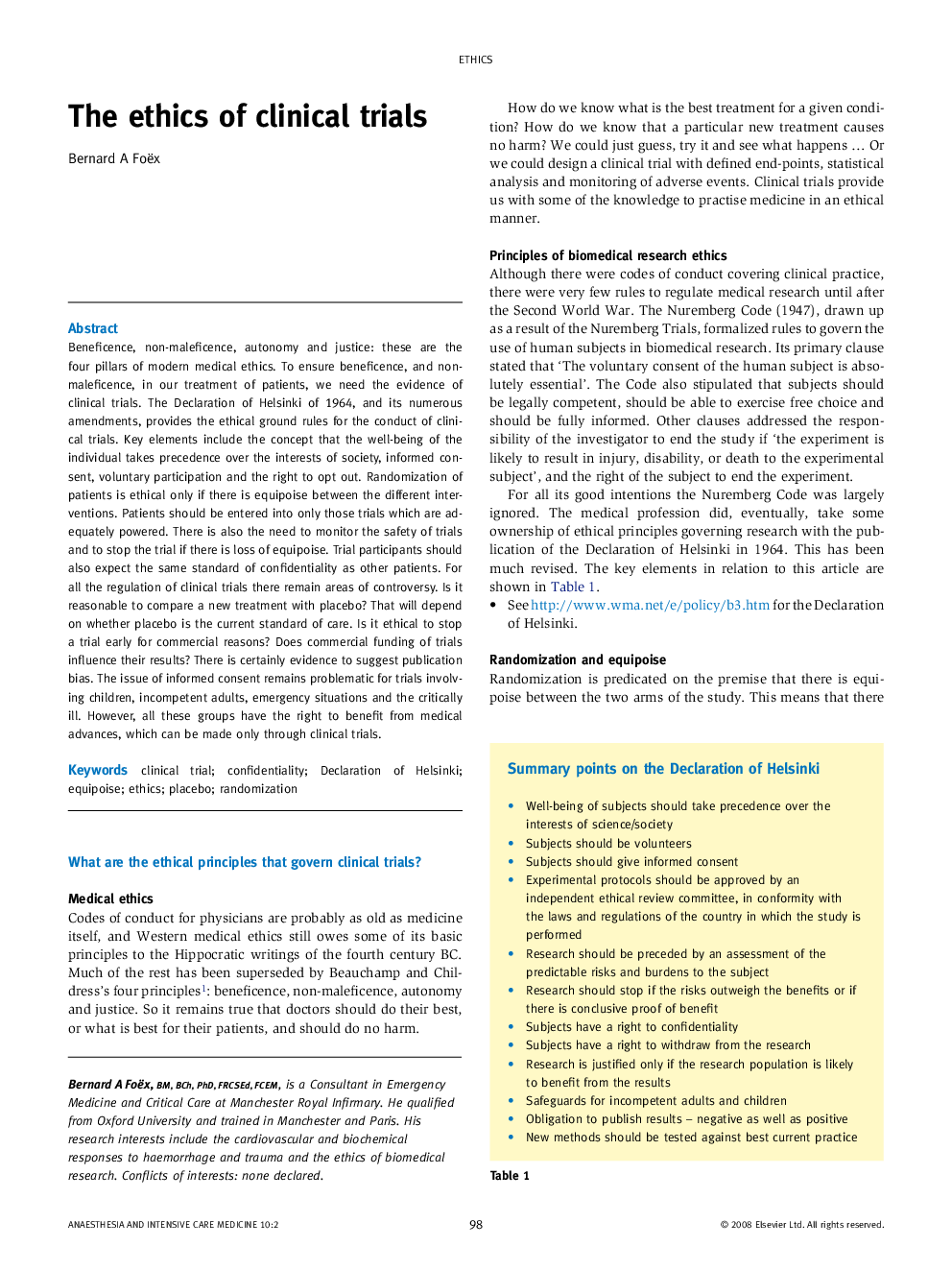| کد مقاله | کد نشریه | سال انتشار | مقاله انگلیسی | نسخه تمام متن |
|---|---|---|---|---|
| 2743325 | 1148663 | 2009 | 4 صفحه PDF | دانلود رایگان |

Beneficence, non-maleficence, autonomy and justice: these are the four pillars of modern medical ethics. To ensure beneficence, and non-maleficence, in our treatment of patients, we need the evidence of clinical trials. The Declaration of Helsinki of 1964, and its numerous amendments, provides the ethical ground rules for the conduct of clinical trials. Key elements include the concept that the well-being of the individual takes precedence over the interests of society, informed consent, voluntary participation and the right to opt out. Randomization of patients is ethical only if there is equipoise between the different interventions. Patients should be entered into only those trials which are adequately powered. There is also the need to monitor the safety of trials and to stop the trial if there is loss of equipoise. Trial participants should also expect the same standard of confidentiality as other patients. For all the regulation of clinical trials there remain areas of controversy. Is it reasonable to compare a new treatment with placebo? That will depend on whether placebo is the current standard of care. Is it ethical to stop a trial early for commercial reasons? Does commercial funding of trials influence their results? There is certainly evidence to suggest publication bias. The issue of informed consent remains problematic for trials involving children, incompetent adults, emergency situations and the critically ill. However, all these groups have the right to benefit from medical advances, which can be made only through clinical trials.
Journal: Anaesthesia & Intensive Care Medicine - Volume 10, Issue 2, February 2009, Pages 98–101